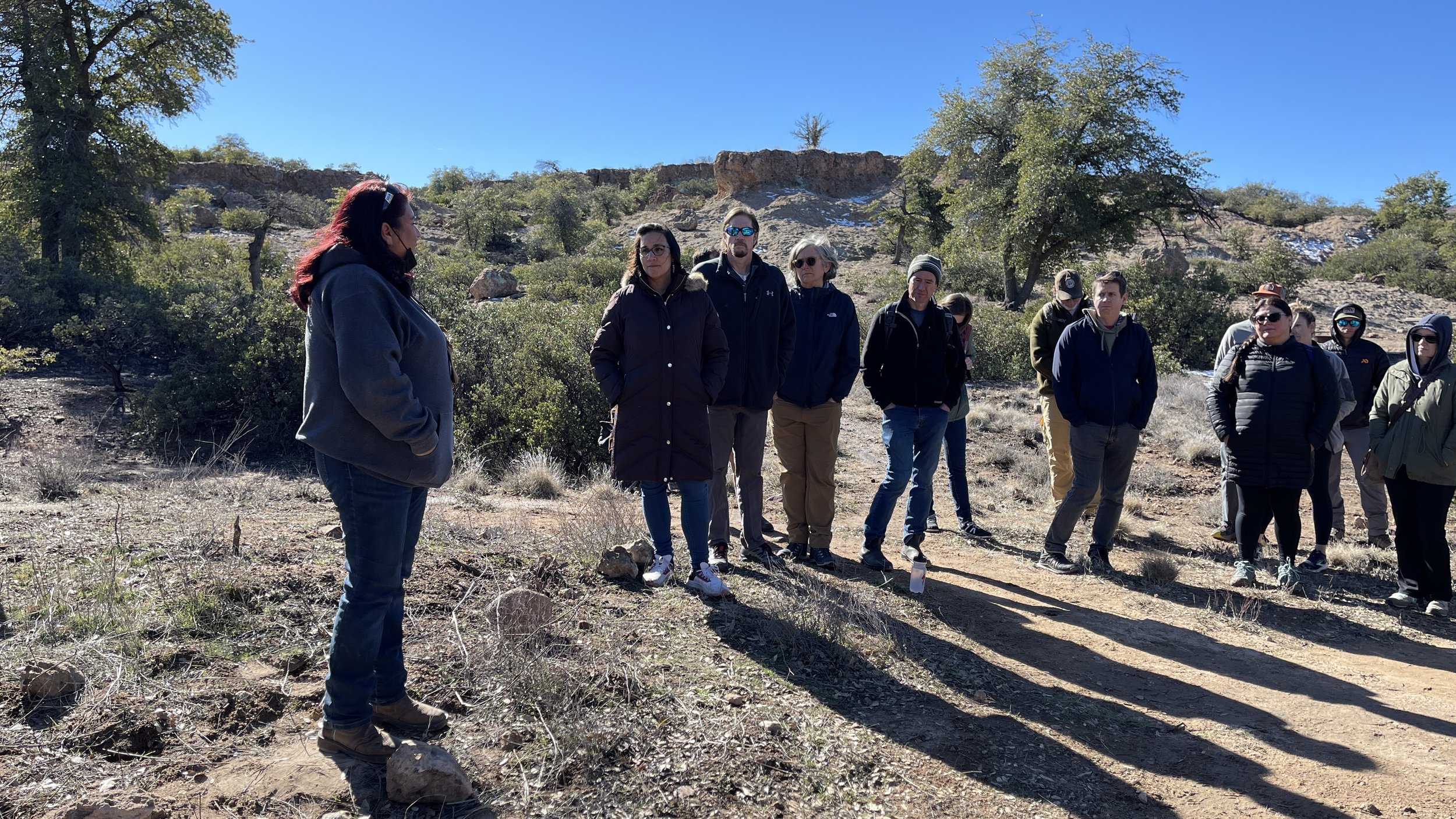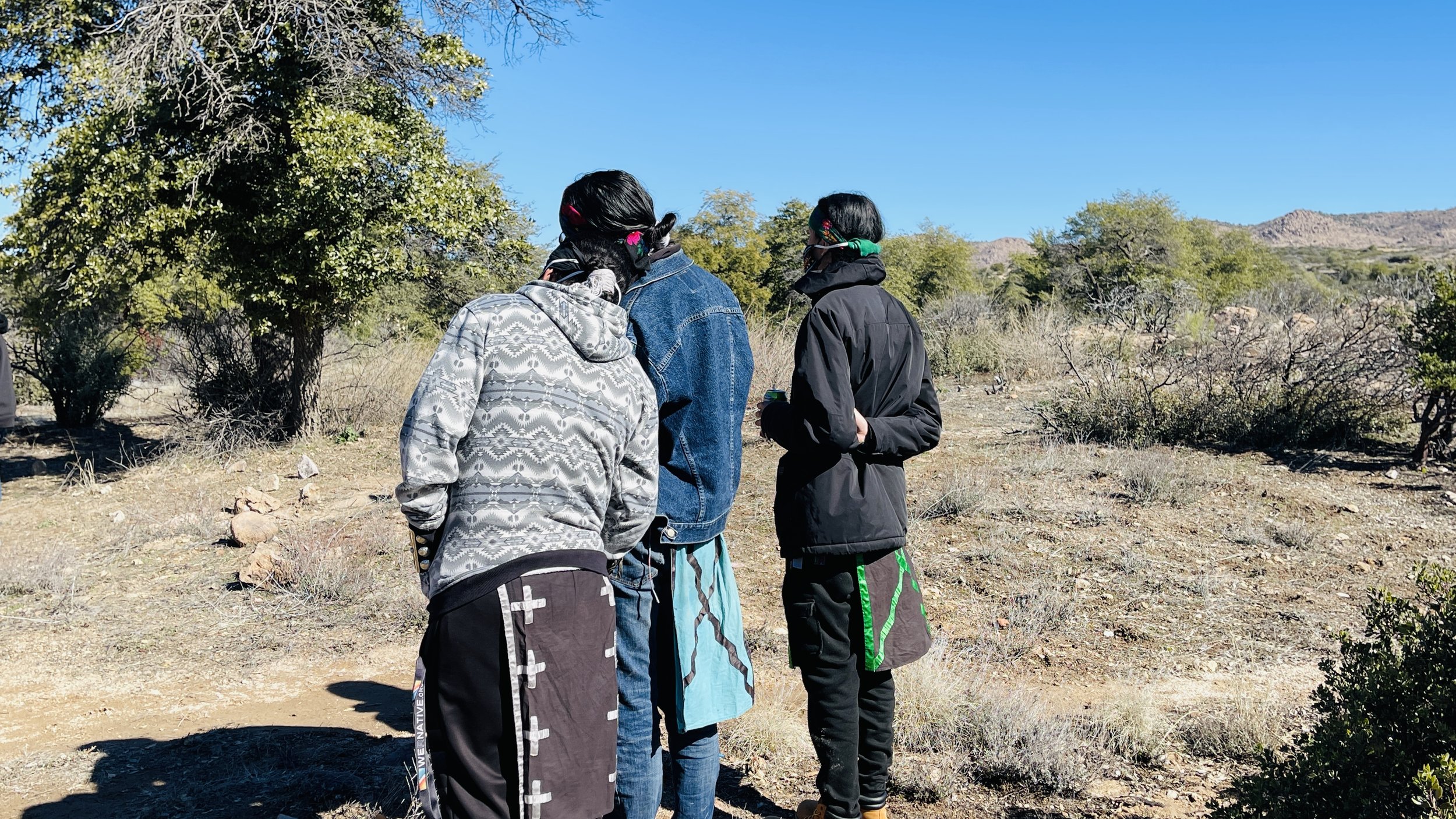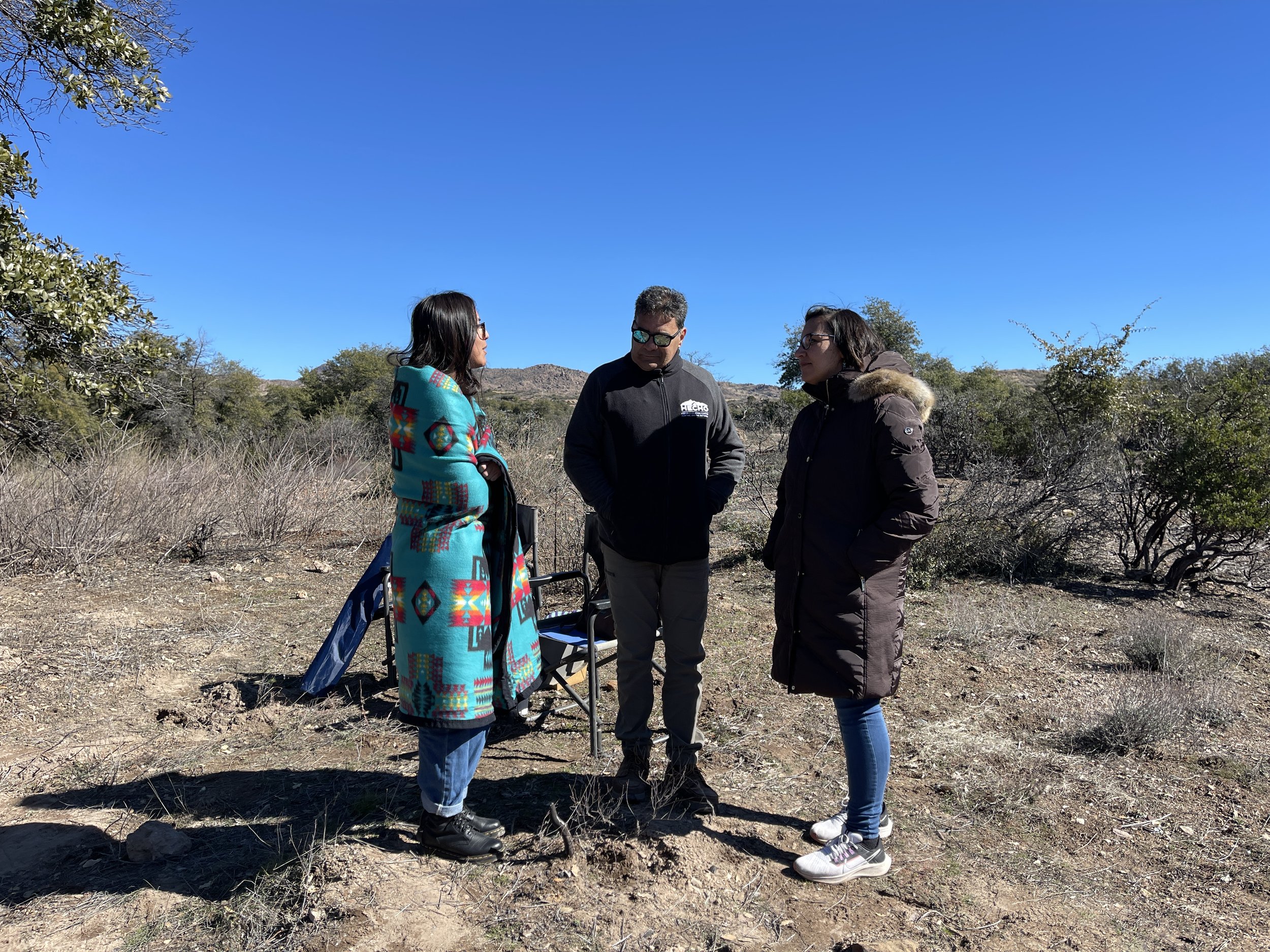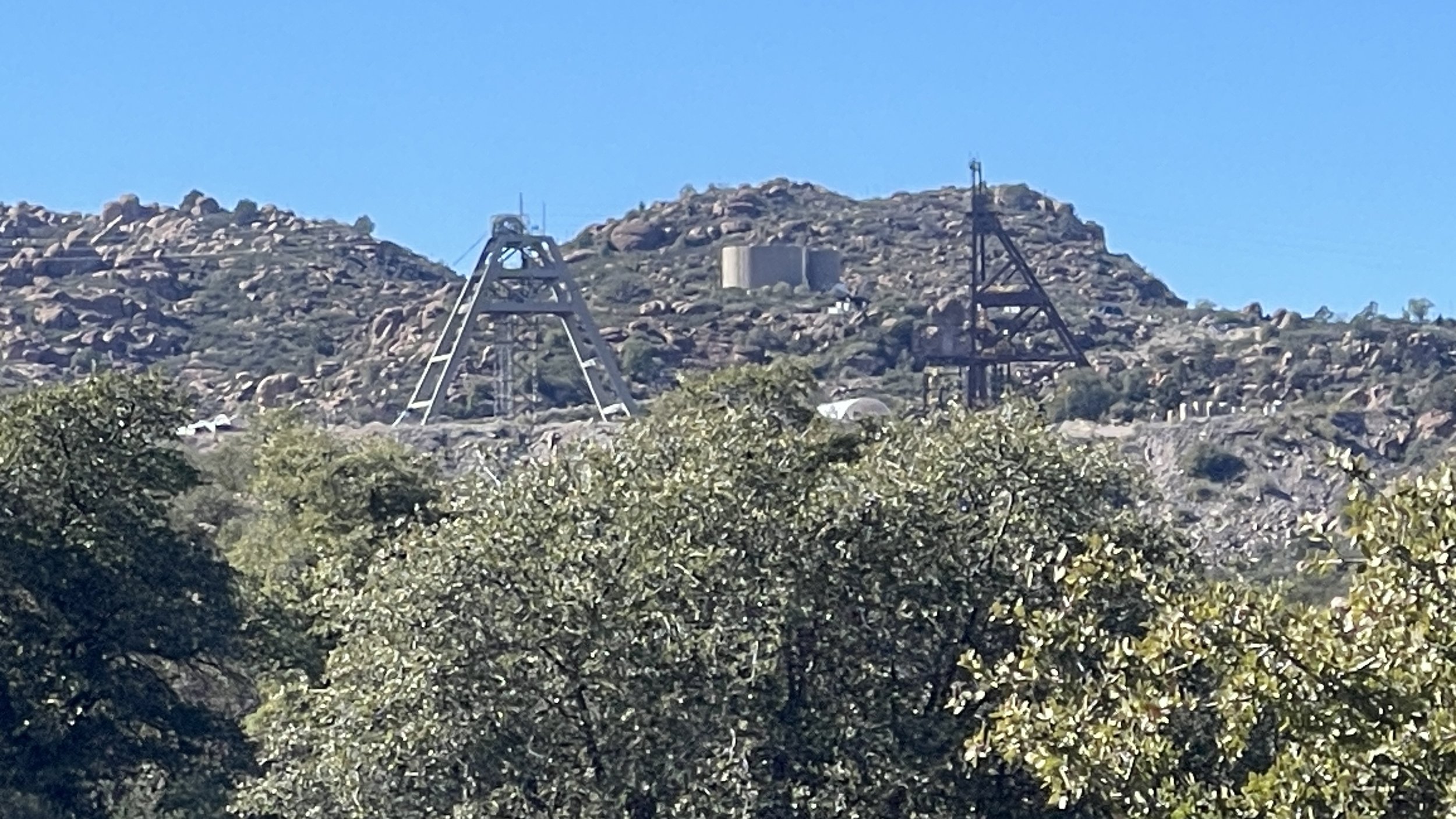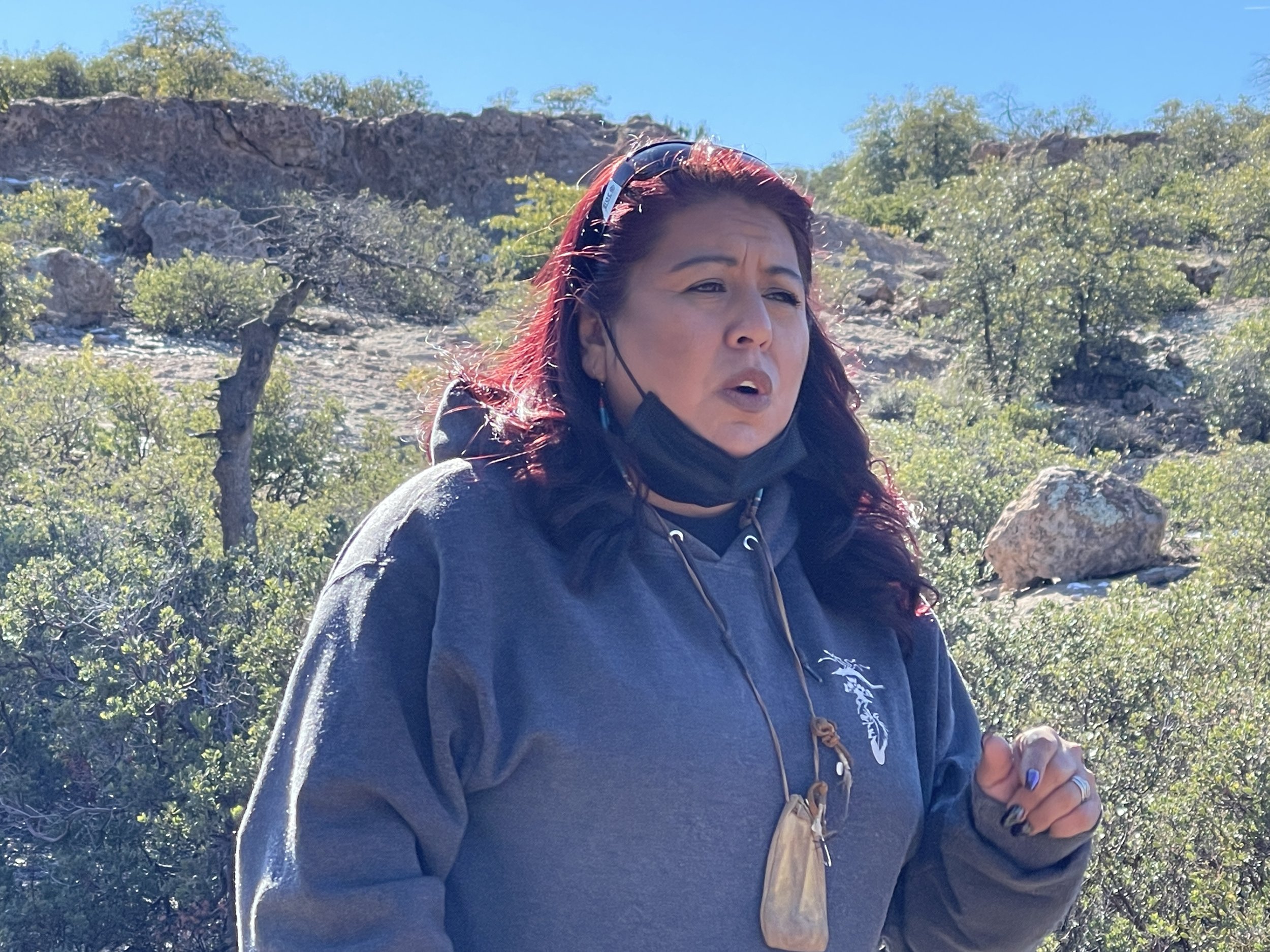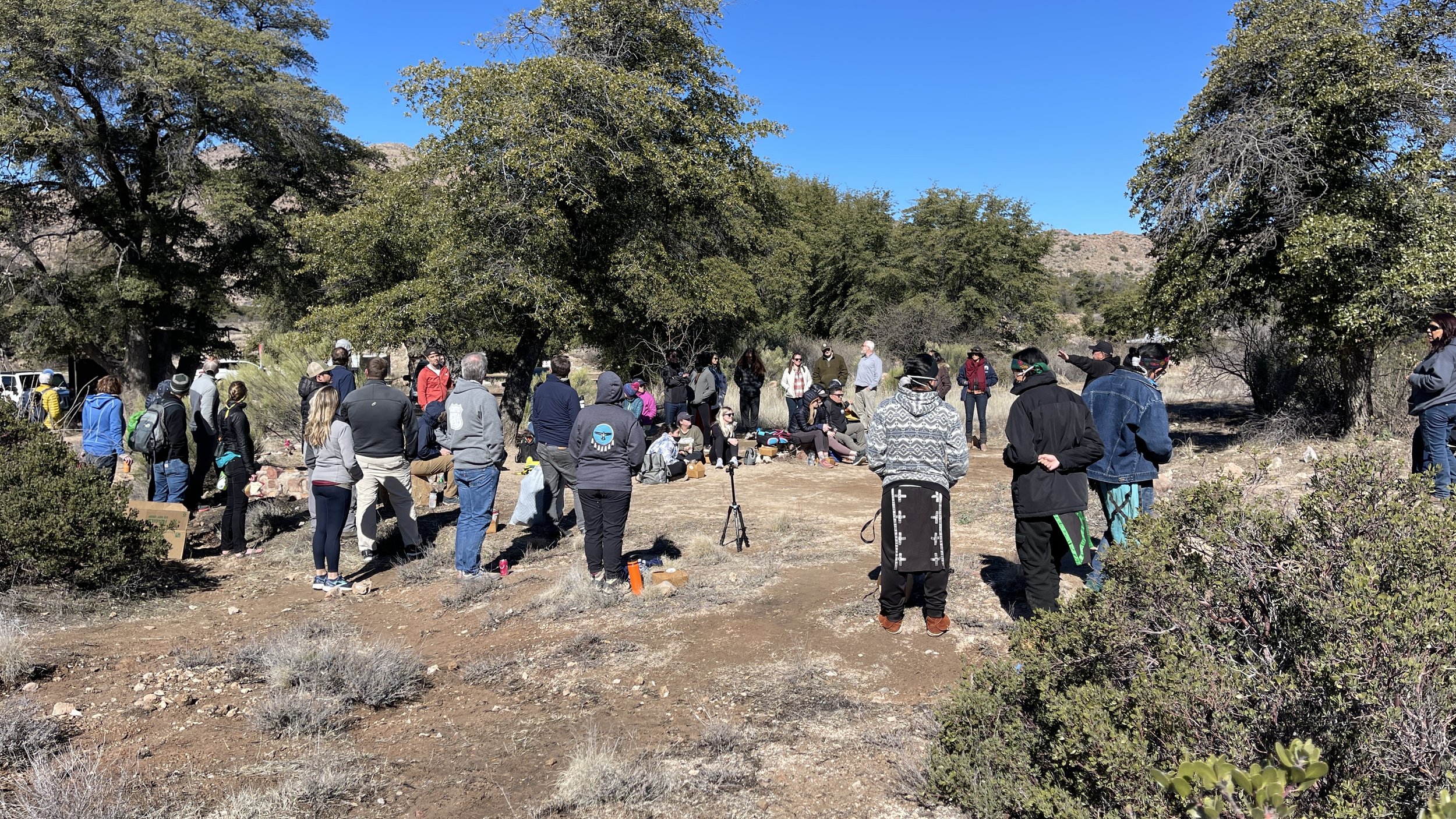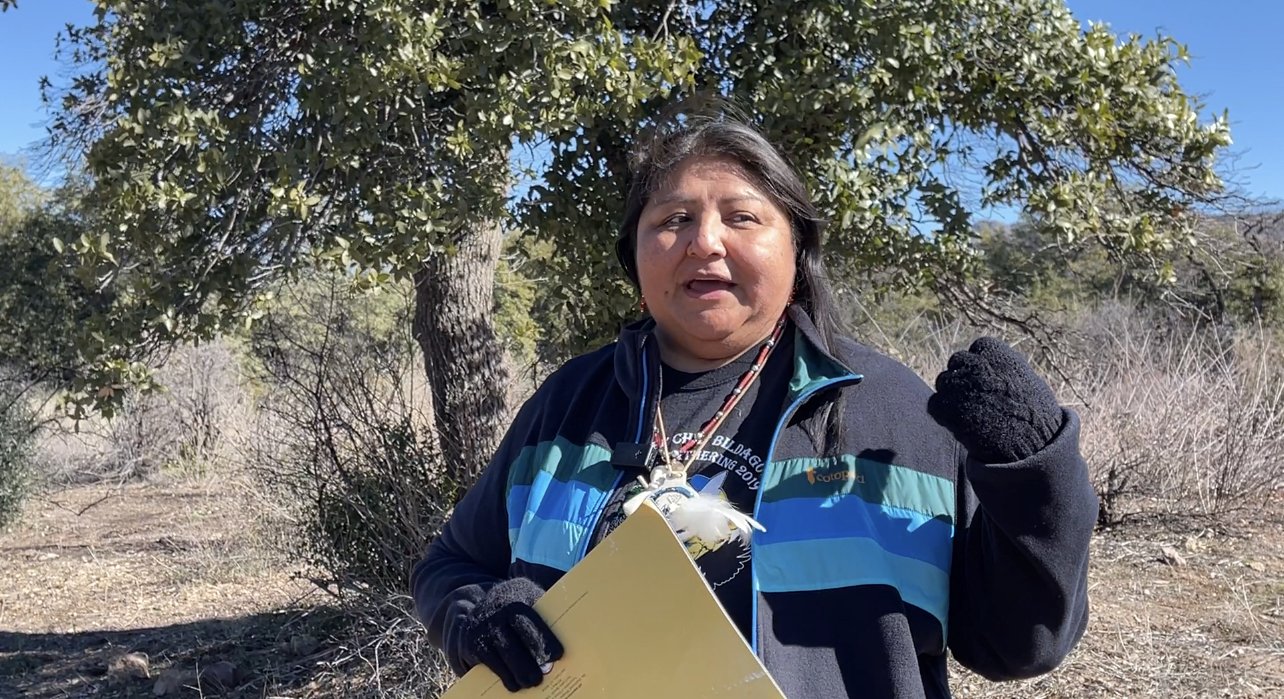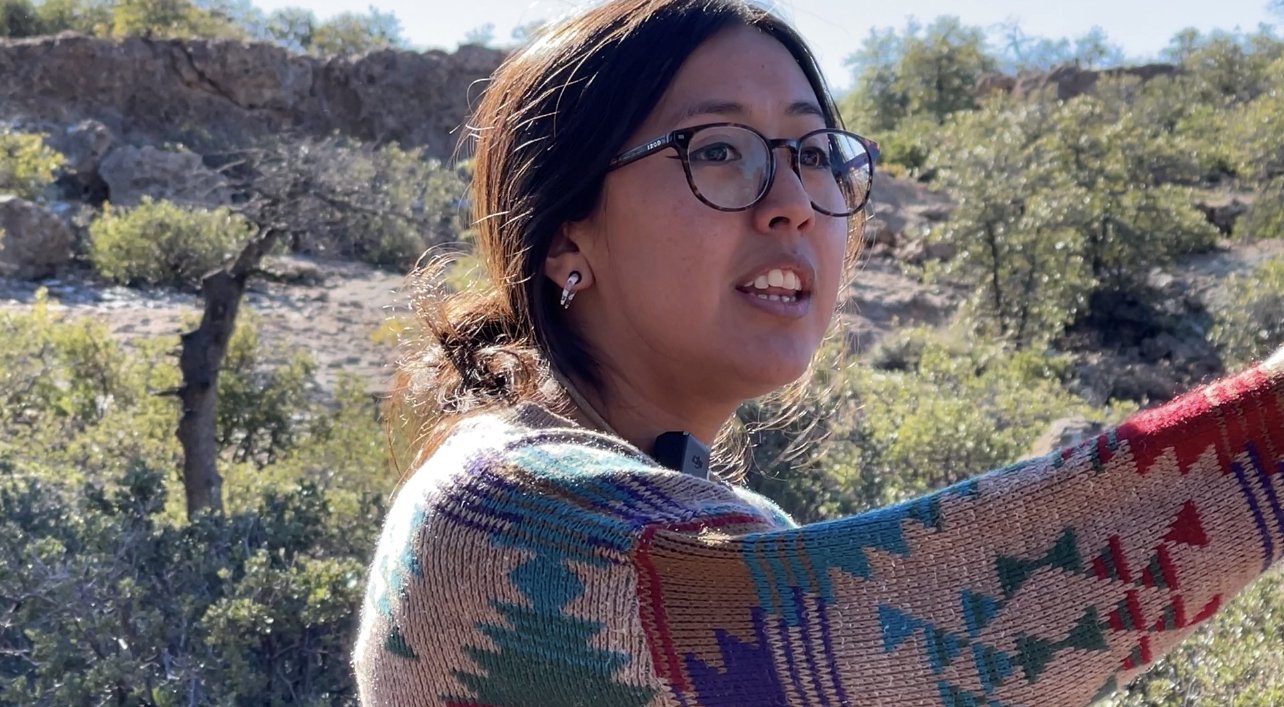Saving Oak Flat: A battle against the violation of human, religious, and environmental rights in a sacred land in Arizona
Some experiences and places can be transformative or change someone's perspective. Oak Flat or Chi'chil Biłdagoteel, a sacred land in southeastern Arizona, is the kind of place that stays with you way after you visit, and so are the people of the San Carlos Apache Tribe, who have lived in and cared for this beautiful high desert since time immemorial.
That was the experience that members of the HECHO team and National Wildlife Federation staff had during a recent visit to Oak Flat, about 60 miles east of Phoenix, where we saw firsthand its extraordinary natural beauty and listened to the eye-opening testimonies of Apache Stronghold members.
Like the story of David versus Goliath, the San Carlos Apache Tribe is fighting for its rights and survival against a powerful foreign mining giant, Resolution Copper, that wants to build and operate the largest underground mine in North America, threatening to destroy Oak Flat and collapsing it into a 1.8-mile-long, 1,000-foot-deep crater.
"If Resolution Copper mine happens, we will never be able to see this precious place again. This area will be a two-mile estimated wide crater as deep as the Eiffel Tower. But it can be three times bigger, as it has happened in other mining places," said Naelyn Pike, a 23-year-old Chiricahua Apache, member of the Apache Stronghold.
At 13, she testified against mining at Oak Flat in front of Congress for the first time, becoming one of the youngest people to do it. Today, her fight to save her ancestors' sacred land and protect Indigenous rights continues.
"They (the U.S. government) told my grandfather and the elders who knocked on their doors, who ran for their life, that they were going to die. But little did they know that their seeds were buried in the ground and I am that plant. I am the product of resiliency," said Pike.
The proposed mine will also exhaust about 250 billion gallons of water from the limited and precious water resources in an area already suffering from exceptional drought.
“We have a water crisis in Arizona. Residents of the state are facing water cuts, yet there are no restrictions for water usage for mines. How are we allowing water to be given to mines that are going to destroy places forever?” said Pike. “Saving Oak Flat goes beyond the boundaries of the Apache people because it is not only about our religious right to be able to pray in this sacred land but also about water and human rights.”
In the 1950s, President Dwight D. Eisenhower protected Oak Flat from mining. This federally-protected area in the Tonto National Forest is listed on the National Register of Historic Places as a Traditional Cultural Property (TCP).
To evade this mining ban, Resolution Copper, a joint venture owned by mining companies Rio Tinto and BHP, went to Congress to get a land exchange. The Southeast Arizona Land Exchange and Conservation Act failed several times in the House and Senate until it was included as a midnight rider in 2014 onto the 2015 United States National Defense Authorization Act, a must-pass bill.
A land exchange must happen within 60 days of the Forest Service publishing the Final Environmental Impact Statement (FEIS), regardless of the findings. Six days before the end of the Trump administration, the Environmental Impact Statement was issued and the clock started kicking for the land transfer, but Biden’s new administration paused it.
A technical report issued in 2022 by the Bureau of Land Management confirms the tremendous and irreversible damage that this mining project could cause, and exposes the severe issues, deficiencies in data analysis, and lack of adequate scientific evidence in that first Final Environmental Impact Statement (FEIS), proving that it was incomplete and that a new environmental study is imperatively needed.
"I am not only fighting to protect my people but all people. The towns of Superior, Miami, and Apache Junction, which won't have a way to survive. I'm fighting for their future children," said Vanessa Nosie, a member of Apache Stronghold and daughter of Wendsler Nosie Sr., who leads the coalition." We're fighting for our spirituality. We're fighting to continue to exist. We're fighting for those yet to be born."
Resolution Copper says the mine will create jobs and increase copper production to meet the growing demand for metal in the United States. But copper has a high recycling value, with almost 75 percent of U.S. copper coming from recycled copper scraps. This mine would create dangerous, low-wage, and unstable jobs. China has a 14% interest in this mine, and most of what is produced will likely be shipped to China and the profits will leave the United States.
"My voice is being stripped away from me. I see that when Resolution Copper says they can mitigate the potential problems they foresee if the mine goes through. But you cannot compensate our story, our people, because we know that, as indigenous people, we are intertwined with the land. We can't call ourselves the caretakers of the land if it is being destroyed," said Pike.
Rio Tinto’s operations have been involved in several environmental disasters in different countries, causing chaos and destruction of Indigenous sites.
"Now it's the time to come together. As much as I'm standing at the forefront of fighting to protect my people and all people, I need you to stand with me," asked Nosie to more than 50 team members of the National Wildlife Federation and HECHO that visited this sacred land for Indigenous peoples.
The San Carlos Apache Tribe hopes more people learn about their story and their land, Chi'chil Bildagoteel, and with that awareness, each person can create action to save Oak Flat so their tribe and other communities can have hope and a future.
Read more about Oak Flat and the Save Oak Flat Act here.

